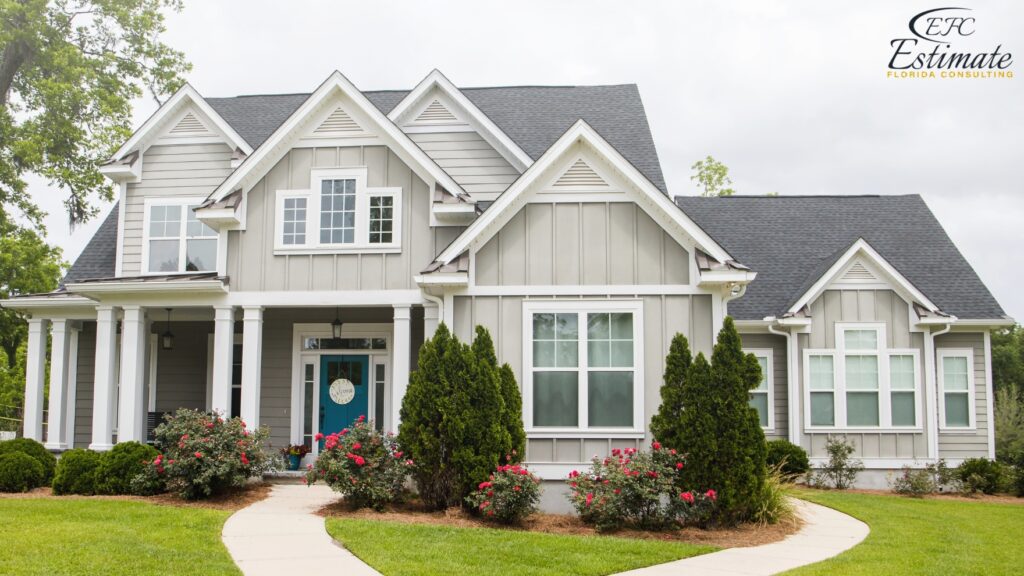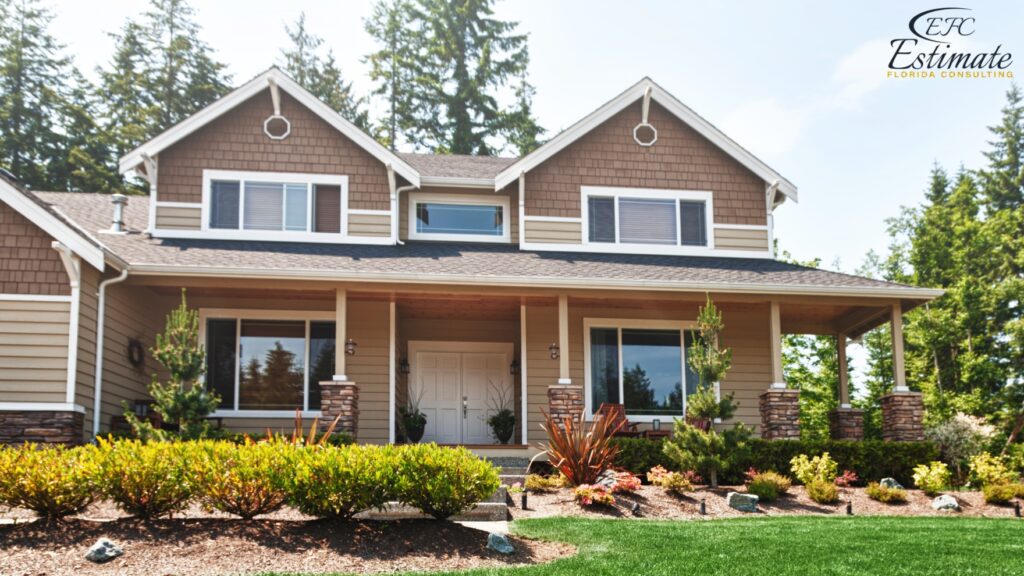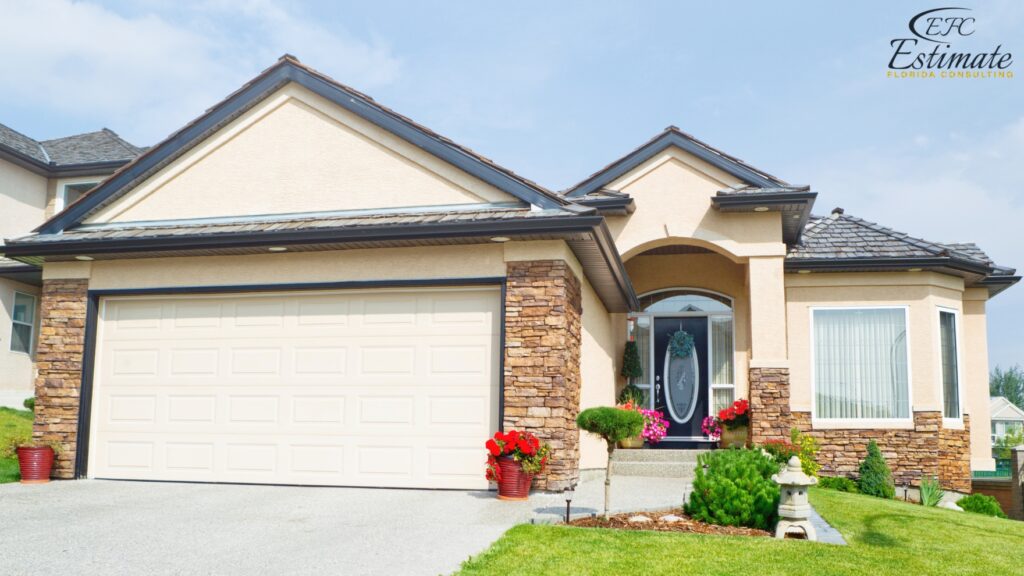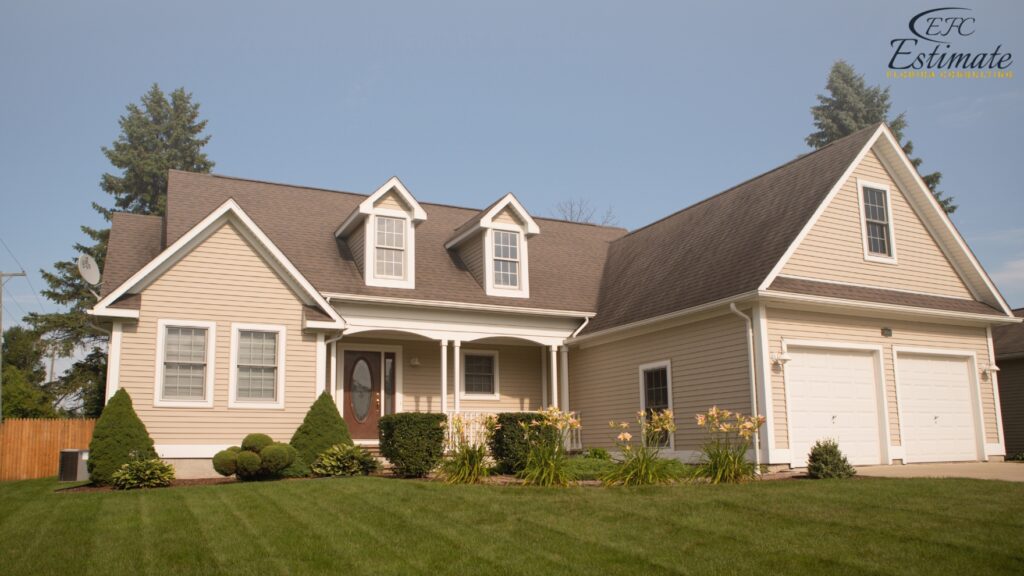How Much Does It Cost to Build a Single-Family Home?
Struggling to find your dream home in the current real estate market? Feeling discouraged by high home prices? Building a new home might be the solution you’re looking for. If you’re considering new home construction but are unsure about the costs, we’re here to guide you.
In this article, we’ll break down the average cost ranges for building a 2,500-square-foot home with two bathrooms and central heating and air, without a basement. We’ll cover construction expenses and other factors that can influence these costs.

Cost Type | Price |
National Average Cost | $607,942 |
Average Range | $437,718 to $796,404 |
Low-end | $340,532 |
High-end | $1.8M |
Factors That Influence the Cost of Building a Single-Family Home
From small and economical to large and luxurious, the total cost to build a single-family home depends on many factors. To help you plan your home-building budget, we’ll explore the building process and the key elements that influence project costs.
Location
Every aspect of home building varies by region. Urban areas generally have higher prices compared to rural areas, from land and labor to materials. Coastal regions often have higher costs than the Midwest. Below is a chart showing the average cost to build a 2,500-square-foot home by state.
State | Average Building Cost |
Alabama | $516,750 |
Alaska | $705,212 |
Arizona | $516,750 |
Arkansas | $486,353 |
California | $705,212 |
Colorado | $522,829 |
Connecticut | $688,976 |
District of Columbia | $577,544 |
Delaware | $614,021 |
Florida | $516,750 |
Georgia | $522,829 |
Hawaii | $693,054 |
Idaho | $553,226 |
Illinois | $638,339 |
Indiana | $541,068 |
Iowa | $522,829 |
Kansas | $504,592 |
Kentucky | $516,750 |
Louisiana | $516,750 |
Maine | $553,226 |
Maryland | $534,989 |
Massachusetts | $650,497 |
Michigan | $553,226 |
Minnesota | $589,703 |
Mississippi | $480,275 |
Missouri | $547,147 |
Montana | $516,750 |
Nebraska | $510,671 |
Nevada | $577,544 |
New Hampshire | $571,465 |
New Jersey | $699,133 |
New Mexico | $504,592 |
New York | $686,973 |
North Carolina | $583,624 |
North Dakota | $522,829 |
Ohio | $547,147 |
Oklahoma | $492,433 |
Oregon | $595,783 |
Pennsylvania | $559,306 |
Rhode Island | $644,418 |
South Carolina | $583,624 |
South Dakota | $510,671 |
Tennessee | $498,512 |
Texas | $492,433 |
Utah | $498,512 |
Vermont | $589,703 |
Virginia | $583,624 |
Washington | $589,703 |
West Virginia | $559,306 |
Wisconsin | $583,624 |
Wyoming | $504,592 |
Get 5 New Leads Next 7Days With Our System
- Multi-Family Building
- Hotel Building
- Hospital Building
- Warehouse Building
- High-Rise Building
- Shopping Complex
Lot Selection
Before you even start construction, costs begin to add up with the land purchase. Land prices vary greatly depending on size, location, and real estate market trends. For example, buying an acre of land might cost you $48,000. However, if you purchase a 100-acre farm, the per-acre cost could drop to around $12,000 since it’s sold as farmland rather than individual building lots.
The price also depends on where you live. Purchasing a typical ⅛-acre lot in the suburbs could set you back $48,000, translating to a per-acre cost of $384,000.
Feeling confused? Don’t worry. A qualified real estate agent can help clarify the details specific to your region.
Plans and Permits
Before any construction can begin, you need to have a plan and secure the necessary building permits. Local building officials will require blueprints and plans stamped with an architect’s or engineer’s seal of approval. Many homeowners choose to collaborate with a modern architecture firm at this stage to ensure their vision aligns with both design standards and building regulations. You can expect to pay between $2,030 and $4,324 for these professional services.
The building official will review the plans to ensure they meet current building codes. Once approved, you’ll need to buy permits for the construction work. Permit costs vary significantly across the country and even within different counties or cities in the same state. Typically, permit fees are based on the total construction cost. You should budget between $4,192 and $7,625 for construction permits, with the potential for additional environmental impact fees that can run into thousands of dollars.
Home Size
The average cost to build a home is about $244 per square foot.
Many contractors use a square footage cost to give you an initial estimate for building a custom home. While this is a useful starting point, the final cost will depend on factors like building materials, upgrades, the floor plan, and other features you choose. So, don’t be surprised if the estimate for your new home comes out higher.

Here’s a breakdown of average costs based on home size:
Room Size | Average Home Build Cost |
1,000 square feet | $244,000 |
1,500 square feet | $365,400 |
2,000 square feet | $488,000 |
2,500 square feet | $609,500 |
3,000 square feet | $731,000 |
3,500 square feet | $852,600 |
Number of Stories
Building a two-story home can be more cost-effective than a one-story house because the foundation and roof are smaller. This results in savings from less site excavation and fewer roofing materials. For a 2,500-square-foot, two-story home with no basement, you can expect to pay between $408,967 and $744,092, depending on location and materials.
Site Work
Once you’ve purchased the land, created plans and designs, and secured permits, it’s time to start site work. This includes expenses for water, sewer, and electricity. In rural areas, this involves well-drilling and septic tank installation, while in urban areas, you’ll pay to connect to municipal systems. Electricity must be run from the nearest line, regardless of location.
- Septic System: Installing a septic system for a three-bedroom home costs between $10,783 and $19,620, depending on your location.
- Well Drilling: Drilling a well can cost from $3,000 to $30,000, depending on location and depth.
- Excavation: Site work to prepare for a 2,500-square-foot home costs about $5,413 on average. Digging trenches for utilities costs between $14.36 and $26.12 per linear foot, depending on location and depth. Overall, excavation can run from $8,682 to $15,797.
Foundation
The type of foundation you choose affects the overall cost. For instance, a crawl space is less expensive than a full basement due to reduced labor and materials. For a 2,500-square-foot home, a full basement costs around $28,811.
Framing
With the foundation in place, builders start constructing the walls. Homes are typically wood-framed with 2×4 and 2×6 studs, covered with plywood sheathing on the outside and drywall on the inside. Lumber prices can fluctuate significantly, as seen during the pandemic when prices added $14,000 to new home costs. Currently, framing a 2,500-square-foot home costs between $87,544 and $159,280.
Mechanicals
Once the foundation, walls, and roof are complete, builders install plumbing, HVAC, and electrical systems. Costs can vary based on additional amenities like Jacuzzi tubs, extra bathrooms, on-demand water heaters, electric vehicle chargers, solar panels, or whole-house generators. The energy efficiency of your HVAC system also influences costs.
Subcontractor hourly rates vary by location:
- Electricians: $121 to $220 per hour
- Plumbers: $121 to $220 per hour
- HVAC Mechanics: $103 to $188 per hour
Other Contributing Factors
The quality of materials significantly impacts the cost of building your home. Upgrading from luxury vinyl flooring to marble, for example, moves you from budget-friendly to luxury pricing. Here are some examples of cost variations:
- Roofing: Composition shingles cost $1.44 to $2.63 per square foot, while a standing seam metal roof costs $17.70 to $50.40 per square foot.
- Exterior Finishing: Costs vary depending on materials used:
- Vinyl Siding: $6 to $9.60 per square foot

- Fiber Cement Board: $3.60 to $7.20 per square foot
- Wood: $8.40 to $14.40 per square foot
- Interior Finishing: This includes flooring, wall coverings, countertops, and trim work. Carpet is the most affordable flooring option, while marble is a luxury choice for countertops. Higher-end materials often require specialized skills, leading to increased labor costs.
Three Typical Budgets for Building a Single-Family Home
When building a home, understanding what you can afford within your budget is crucial. To help you choose the right options for your lifestyle and stay within your financial limits, we’ve broken down the costs of building a single-family home into three pricing tiers.
Basic Home
The average cost to build a basic home ranges from $340,532 to $619,579. This type of home includes all the essentials with builder-grade materials. In this category, you can expect the following features:
- Asphalt shingle roof
- Vinyl siding
- Builder-grade cabinets and appliances
- Carpeting or laminate flooring
- Crawl space
Mid-Range Home
The average cost to build a mid-range home ranges from $525,262 to $955,685. This budget tier includes upgraded furnishings and materials, and possibly a basement or garage. In a mid-range home, you’ll find:
- Architectural shingles
- Vinyl siding
- Semi-custom cabinets and upgraded appliances
- Luxury vinyl or ceramic tile flooring
- Possibly a basement or garage
Luxury Home
The average cost to build a luxury home ranges from $1,172,314 to $2,132,959. A luxury home includes all the essentials, many extras, and high-end materials. In this category, you can expect:
Standing seam metal roof
- Brick or stone veneer siding
- Custom cabinets and built-ins throughout the home
- Commercial-grade smart appliances
- Natural stone or hardwood flooring
- Both a basement and a garage

How to Budget for Building Your Own Home?
Let’s face it, building a home is expensive. Whether you’re sticking with the basics or going all-out with a luxury build, the cost will likely require financing. But before you start construction, you need a solid plan. That’s where the expertise of a designer or builder comes in handy.
These professionals are trained to take your vision and put it down on paper. Their team of architects, designers, and project managers will listen to your desires and create a plan of action. You can then adjust the plan until it fits your budget.
Paying for Your Home Build
Few homebuyers pay cash, especially for a new home build. Most people need financing options. Once you have a workable budget, take the cost estimates to a lender to explore your options. While you won’t qualify for a traditional mortgage since the home isn’t built yet, you can apply for a construction loan. Construction loans are short-term loans, typically lasting 12 to 18 months, used to pay your general contractor upfront. Once the home is built, the construction loan converts into a standard mortgage, or you’ll need to refinance it.
If you don’t own a home with enough equity for a down payment on the construction loan, you’ll need about 10 to 30 percent in cash for a down payment.
Ways to Save Money When Building a New Home
If you’ve worked with a design/builder to pare down the budget and it’s still more than you can afford, here are a few ways to save money:
- Make a Few Lists: Start with a list of must-haves and nice-to-haves. You may have already eliminated the nice-to-haves, but now take a closer look at your must-haves and see if any can wait until a later date.
- Start Smaller: Consider building a smaller home initially. Old farmhouses often had multiple wings added over time as families grew. If you can sacrifice a little space now, you can save on your budget.
- Use Less-Expensive Materials: Look for ways to save on materials like roofing and flooring. Choosing less expensive options can still result in a quality-built home.
- Leave Some Things Undone: Consider leaving certain elements like landscaping, outdoor living areas, and new appliances out of the initial loan. You can move in with your old appliances and save for the new patio or other features later.
Download Template For Home Project Breakdown
- Materials list updated to the zip code
- Fast delivery
- Data base of general contractors and sub-contractors
- Local estimators

Conclusion
Building a single-family home can be a cost-effective alternative to navigating the current real estate market’s high prices. Understanding the average costs and factors that influence building expenses is crucial in planning your new home.
The national average cost to build a 2,500-square-foot home ranges from $437,718 to $796,404, with low-end projects around $340,532 and high-end projects reaching up to $1.8 million. Factors such as location, lot selection, home size, number of stories, site work, foundation type, framing, and the quality of materials all play significant roles in determining the overall cost.
By working with professionals and carefully planning your budget, you can build a home that fits your needs and financial situation.
FAQs
The national average cost is $607,942. Costs can range from $437,718 to $796,404. On the low end, it’s about $340,532, and on the high end, it can reach up to $1.8 million.
Key factors include location, lot selection, home size, number of stories, site work, foundation type, framing, and the quality of materials.
Urban areas generally have higher prices compared to rural areas, from land and labor to materials. Coastal regions often have higher costs than the Midwest.
Land prices vary by size, location, and market trends. For example, an acre of land might cost $48,000, but a 100-acre farm could cost $12,000 per acre because it’s sold as farmland.
Professional services for plans can cost between $2,030 and $4,324. Construction permits range from $4,192 to $7,625, with potential additional fees.
The average cost is about $244 per square foot. For example, a 1,000-square-foot home costs $244,000, while a 3,500-square-foot home costs $852,600.
Yes, because the foundation and roof are smaller, reducing costs for site excavation and roofing materials. A 2,500-square-foot, two-story home costs between $408,967 and $744,092.
Google Reviews



Process To Get It Cost to Build a Single-Family Home Estimate Report
Here I am going to share some steps to get it cost to build a single-family home estimate report.
-
You need to send your plan to us.
You can send us your plan on info@estimatorflorida.com
-
You receive a quote for your project.
Before starting your project, we send you a quote for your service. That quote will have detailed information about your project. Here you will get information about the size, difficulty, complexity and bid date when determining pricing.
-
Get Estimate Report
Our team will takeoff and estimate your project. When we deliver you’ll receive a PDF and an Excel file of your estimate. We can also offer construction lead generation services for the jobs you’d like to pursue further.

